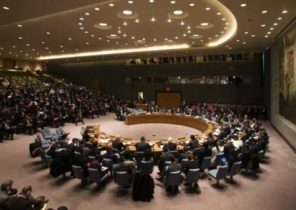
Launched in 2014 and 2015 in France, a multimedia platform and the news channel is very active on social networks.
Russian media came to the fore in the French presidential campaign, when the General Secretary of the movement “Forward!” Richard Ferrand said in February about their “interference” in the election process. “It’s been a few weeks SputnikNews hard RT and spread the most slanderous rumors about Emanuele the Macron”, — the Deputy noted in an article in Le Monde.
Although Sputnik and RT deny their desire to influence the election, the accusation put them on public display two years after the appearance in France (respectively in late 2014 and early 2015). Platform and a channel formed his own space. Their content is often found in the search engines, and they are widely represented in social networks: RT is one of the most active French-speaking media in the Periscope (Application for live video streaming via dedicated apps for Android and iOS, owned by Twitter — approx. ed.). As a result, according to the press service, he managed to double the audience in 2016 to the level of 2.5 million unique users per month. In Sputnik Agency also reported a doubling of traffic in France starting June 2015.
Inciting distrust of the media
Anyway, to seek meetings with their representatives in France is not easy. RT, whose office has repeatedly moved to Paris, agreed to answer questions from le Monde only through its press office in Moscow and only in writing. Sputnik a little more affordable, but also agreed to answer questions in writing through the head of the Paris office Natalia Novikova. Its editorial Board, consisting of 15 people, located on the ground floor of a beautiful building in the 17th arrondissement of Paris. It is owned by the Russian state and is a former representative of the news Agency “RIA Novosti”, which ceased to exist in late 2014, although the sign with his name still hangs near the entrance.
From an editorial point of view, the sites complement each other. Their slogans like: “We say what others are silent” to Sputnik and “ask” for RT. De positions are designed to foment distrust of the French to their media. Style Sputnik closer to the tabloids, then RT follows a more academic approach.
This couple should also add the French version of the website Russia Beyond The Headlines, the project of the governmental newspaper “Rossiyskaya Gazeta” (SIC, actually RBTH is now part of RT — approx. ed.). “Russia Beyond The Headlines is reminiscent of The Economist, Sputnik — News of The World, and RT is somewhere between the two,” — says journalist Nicolas Henin (Nicolas Hénin), the author of the book “Russian France: an investigation of Putin’s networks of influence””.
The logic of relations
These details is just a form. The essence is the same: the protection of Russian positions on international issues such as Syria, friendly attitude to supporters of sovereignty, constant coverage of social tensions in France… Among presidential candidates, namely Francois Fillon and marine Le Pen is widely presented on both sites.
Although RT claims that are not guided by a “political agenda”, as Sputnik says, he writes about all the major parties, their line close to the right-wing nationalist media type Valeurs actuelles, whose Director, Yves de Kerdrel, incidentally, wrote for RT. Dogim a regular contributor, now for Sputnik, is europasslogo-wing economist Jacques Sapir (Jacques Sapir): once a week he writes an article for the site.
This position explains the frequent mention of these media in the most right side of the political spectrum. Expert on Russia and author of the book “Kremlin network in France,” Cecile Vessey (Cécile Vaissié) talks about the “cascade effect”, which generates a lot of websites, blogs and pages in social networks that publish this content.
To the questions about this issues RT says that is “a platform for underrepresented voices”, while Sputnik claims that reports on “everything that happens”. “They realized that the label “Kremlin media” is to their detriment, says Nicolas Henin. Now they follow the logic of normalization”.
In particular, it notes the removal of Sputnik conspiracy articles, such as “the U.S. air force shot down a German A320?”, in which the journalist claims that the Germanwings aircraft crashed due to intentional pilot action in 2015, in fact, was shot down by the Americans. On the website called the incident a normal case of non-private, but does not lose the taste for questionable topics like research about aliens.
Under the supervision of the CSA
this desire for normalization is a prerequisite for
scheduled for 2017 major project of the Russian media in France: the launch of the all-news channel RT France. As reported in RT, broadcasting should start at the end of the year. That is, late: initially, the channel was supposed to start work in 2016, but the fall of the ruble was the impact on the budget and led to the postponement of the plans. In December 2016 RT received from the state advanced of 1.22 billion rubles. A significant portion of this amount is aimed at financing the French channel, whose annual budget was this about a million euros.
From a legal perspective, everything has already been decided: agreement with the Higher audiovisual Council of France (CSA) was signed in September of 2015. It spelled out a requirement of “diversity”, “fairness” and “independence”, which should allow CSA to closely monitor the work of the RT. The Council is not left without attention the English version of RT, which has repeatedly received criticism of the regulator, at the risk of losing frequencies. In Paris, the canal promised to create an ethics Committee, composed of three a “friend” of Russia: the economist Jacques Sapir, academician hélène carrère d ankos (Hélène Carrère d’encausse) and the Deputy from “Republican” Thierry Mariani (Thierry Mariani). The latter has no information about the launch of the channel, which means that the project is still in preparation.
In January RT instructed specialized in the audiovisual sector recruitment Agency TalentLinkr search managing editor for the French website. Importantly, the application noted the following: “the Candidate must not be afraid of the pressure and be able to promote the editorial policy, controversial”. Like the English version, which attracted longtime CNN star Larry king, RT can attempt to convince a prominent French journalists. So, at the end of 2015, the channel got in touch with former lead France 2 Philippe Verdier (Philippe Verdier), dismissed after the publication of the book, where he challenged the existing scientific consensus on climate change, and entrusted him with the lighting of the Paris conference on climate change.
In addition, the launch of the channel will mean a change of leadership. Until recently, its French representative, was ruled by Irakli Gachechiladze. His organizational experience was perfect for the period of consideration of the application of RT in the CSA. Now it will be headed by 37-year-old Ksenia Fedorova, which for ten years working with the channel after studying in Berlin. She worked for a year in the French representation RT, and the last two years headed the Russian videoagentstvo Ruptly in Berlin.
As you can tell by her example, leadership of the RT consists partly of young Russian polyglot who often had to live abroad. One of them also applies Svyatoslav Shchegolev, the son of the former Minister of communications Igor Shchegolev, who worked in the Paris office of the TASS Agency in 1990-ies.
Whatever it was, anxiety about the development of Russian media in France cause some annoying feelings to the leadership channel, despite its international character. An example of this statement will serve as editor-in-chief Margarita Simonyan, which she did in February, the newspaper la Croix: “the French press every day publishes fake news about RT, Sputnik, Russia. And no one in Paris does not condemn this misinformation”.






